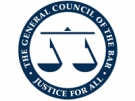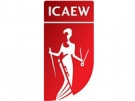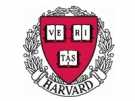 You have probably heard of Harvard College, located in the USA in Cambridge, Massachusetts, but do you know how to prepare for and apply to an American university? It’s all so different from the UCAS system, plus chances are your teachers or parents may not know very much about how to help you.
You have probably heard of Harvard College, located in the USA in Cambridge, Massachusetts, but do you know how to prepare for and apply to an American university? It’s all so different from the UCAS system, plus chances are your teachers or parents may not know very much about how to help you.
Well, Harvard has created a website especially for British students, teachers, and parents/guardians – all the information you need to educate yourself about US unis, about how to apply, what kinds of students go there, and especially about Harvard. Just go to www.harvard-ukadmissions.co.uk and find out for yourself what the opportunities are! And don’t be put off by the US uni fees – make sure you read the ‘Financial Aid‘ page and see how the generous Harvard scholarships programme can often provide enough support so that the costs are actually competitive with the UK.
Here are some of the typical questions Harvard often hears from British students – we answer them more fully on the website, where some current and former students give their views and comments too.
What does a Liberal Arts Programme mean?
Liberal arts is an American term for an academic programme that recognizes the need for both broad education across the spectrum of the arts and sciences and depth of education in one specific field. You do not apply to a specific programme, but instead just “apply to Harvard” and then choose your particular field of interest, or “concentration” during the second year of the four year programme.
What are some other benefits of the American college experience?
STUDENT DIVERSITY. You can expect to find classmates from all across North America and around the world, coming from every conceivable socioeconomic, geographic, religious, ethnic, and political background. The diversity of experience and belief and the resulting exchange of ideas add to the lively mix of campus life, both in the classroom and outside. After graduation, you’ll have friends and contacts all over the globe.
EXTRA-CURRICULARS: Most colleges in the US encourage a balance between your academic and extracurricular lives. Schoolwork is primary, but your outside interests are equally important. Make friends, practice organizational skills, learn the fine arts of teamwork, diplomacy, and compromise – all while having fun!
RESIDENTIAL LIFE: Harvard, like many US colleges, provides on-campus housing for all Students for all four years, which means that 24/7 you are surrounded by the social and academic life of the school.
Timeline: Start your search for information early!
There is a degree of forward planning involved in order to assemble all the required information in time for the deadlines, so it is helpful to think about this process as early in your Upper School career as you can, preferably in Year 11 or even before. The application deadline is January 1st for entry the following September. You will also need to take some standardised tests called the SATS (no relation to the UK ones!) and because they are in multiple-choice format, it is a good idea to practice them in advance. Have a look at the website pages that discuss the application process and the application requirements such as the SAT tests.
SAT Tests
Both the SAT1 Reasoning Test and the SAT2 Subject Tests must be taken by the January test date. The tests are given six times each year at several locations throughout the UK. To familiarise yourself with the format before you take the tests, check out the practice SAT test questions on the College Board website (www.collegeboard.com). Test prep books can be ordered through Amazon or might be found at libraries or the UK Fulbright Centers. You cannot sit both SAT1 and SAT2 on the same date and you need to register on-line for the tests about six weeks ahead of the test date. Don’t worry too much about the SAT’s – we will look at your scores with your educational background in mind. We know that the British system has a different curriculum that does not always match well with the SAT Subjects on offer, and that UK students do not normally prepare as extensively for the SAT as do the US students.
Getting the Application together
GRADES: There are no set grade cut-offs for admission, but for the most selective colleges in the US, such as Harvard, usually GCSE’s would be mostly A or A*, and predicted A-levels would be AAB or better. This past year we had over 29,000 applications for about 2,000 places…you do the maths! But also remember that Harvard is not just about grades, but seeks out exceptional all-rounders.
ESSAYS: You will need to write personal essays as part of the application. The website offers you some good examples of US-style writing.
RECOMMENDATIONS: Two teachers plus your housemaster or careers advisor should write letters of recommendation on your behalf. Ask them to include as many details and anecdotes as possible to help bring you alive to the reader. There are samples of good “Teacher Reports” on the website too!
INTERVIEW: You will have the chance to meet informally with a graduate of Harvard. The dual purpose is to let you ask questions of someone familiar with our campus and community, and for us to learn more about you.
Costs and Financial Aid
It’s true that Harvard is more expensive than Uni in the UK, but in many cases financial assistance will be sufficient to make the “net price” affordable. Harvard is fortunate to be able to admit all students, even international students, without regard to whether they need financial assistance. We have a generous financial assistance programme which awards bursaries based entirely on need and not merit, and takes into account all costs (tuition, fees, room, board, books, and travel.) We want to be sure that the best students, no matter what their economic background, are able to enrol at Harvard. More details about our financial aid programme can be found at www.fao.fas.harvard.edu.
Good luck!












































